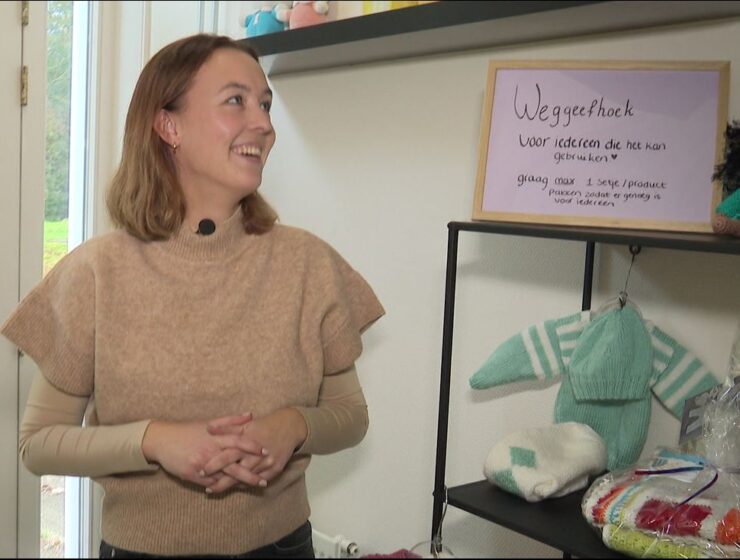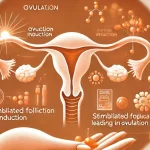Pregnancy is one of the most beautiful adventures you can experience, but if you have hemophilia or are a carrier, there is an extra layer to it. Hemophilia is a hereditary condition in which your blood does not clot properly, which can lead to prolonged or even risky bleeding. Whether you are pregnant or dreaming of a child, with hemophilia in your life, it is wise to be well prepared. Midwives Lelystad We understand that this can be a concern, and we are here to support you every step of the way.
A little more: Hemophilia makes your pregnancy unique – it requires extra attention, but with the right approach, you can rock it. It’s not just about your body, it’s about your state of mind – you want to keep your baby and yourself safe. That starts with knowing what’s going on and how to tackle it.
What is hemophilia?
Hemophilia is a congenital condition that disrupts your blood clotting party – your body produces too little clotting factor, which causes bleeding to last longer. It comes in two flavors: hemophilia A (too little factor VIII) and hemophilia B (too little factor IX). Both can cause heavy bleeding, after a cut or out of the blue. Men usually get it, because it’s on the X chromosome, but women can be carriers and sometimes have mild symptoms. If you understand this well, you’re already well on your way, especially if you’re planning a pregnancy.
Extra explanation: those clotting factors are like glue for your blood – without enough of them, it keeps flowing. For women who are carriers, it’s often milder – think more bruising or heavier periods. But pregnancy can shake things up, so knowing where you stand is key.
Dreaming of a child
Do you have a desire to have children and hemophilia in your package? Then it is wise to take a moment to consider what that means. A chat with a genetic expert can clarify the chances of your child getting it and how your body reacts to pregnancy. It is all about information - the more you know, the better you choose. Prenatal tests can provide a glimpse, so that you are ready for what is to come. It is your journey, and we will help you plan the route.
Learn more: It’s not just “can I get pregnant?” but also “how do I keep it safe?” A genetic counselor breaks it down for you—percentages, risks, options. It’s not light reading, but it gives you the power to decide.
What do you tell your midwife or GP?
If you’ve decided to go for it, it’s time to have a good chat with your midwife or GP. Lay it all out on the table – your haemophilia, your medical history, your fears and hopes for the pregnancy. What do you need to discuss? Whether you need special care, how often you should come, and whether genetic testing is a good idea. That way, we can build a plan that makes your pregnancy smooth – completely tailored to you.
Extra tip: write down your questions before you go – what about bleeding, what if I’m tired? It helps you cover everything. We at Midwives Lelystad take the time to go through it with you.
How likely is it that your baby will get it?
A big question for carriers: will my child get hemophilia? If you carry the gene, there is a 50% chance that a boy will have it and a 50% chance that a girl will be a carrier. That is why a genetic counselor is worth its weight in gold. Tests such as chorionic villus sampling or amniocentesis can check it – so you know what to expect and can prepare.
More info: the X chromosome is the boss here. Boys only have one X, so if they have the gene, bam – hemophilia. Girls have a backup X, so they often become carriers. It’s a game of chance, but with tests you know more.
What do you notice about hemophilia?
Hemophilia feels different for everyone, but for carriers it is often subtle – bruises that appear suddenly or bleeding that does not stop. Pregnant? Then it can be noticeable – your body changes, and bleeding can seem heavier. Keep an eye on it and report it to your midwife – that way we can make a plan that suits you.
Extra: You may always have a little more blood with your period – that could be a hint. Pregnancy demands more of your blood, so those little signals become bigger. We'll keep it sharp for you.
How does hemophilia occur?
Hemophilia is purely genetic – it comes from your parents through your DNA. In type A there is a mistake in the gene for factor VIII, in type B it is factor IX. The X chromosome carries it, so if mom or dad has it, it can continue. Knowing how it works helps you make choices about your desire to have children.
More: It’s a mutation – a little kink in your genes. If you’re a carrier, you pass it on 50-50. It’s hereditary, but sometimes it skips a generation – tricky stuff.
Are there any dangers?
Yes, definitely – being pregnant with hemophilia comes with some risks. Bleeding during delivery or after is one thing – you can lose too much, which makes you weak or worse. Together with a team – midwife, hematologist, specialists – we keep it safe. It’s all about preparation.
Extra: postpartum bleeding is a biggie – your body is already tired, and clotting is slower. With a good plan – maybe extra clotting stuff – we can handle that.
Menstruation and hemophilia
For carriers, your period can be a struggle – heavier, longer, more of a hassle. It can make getting pregnant harder and affect your mood. Tell your midwife – we can help you with a plan to keep you fit.
More: Those tough times can take your iron down a notch – you feel tired, sluggish. Being pregnant takes extra toll, so we’re looking at how to keep you strong.
Check for hemophilia
Prenatal tests are key when you are pregnant. With a chorionic villus sampling or amniocentesis we can see if your baby has it. That gives you peace of mind and a plan - we talk it through so you know what you are choosing.
Bonus: Those tests aren't scary — an ultrasound helps, and it's fast. It's a peek into your baby's genes, so you're ready for what's to come.
After birth
Once your baby arrives, we’ll keep a close eye on him – bruising or bleeding after an injection could be a sign. Stay in touch with us – early checks make all the difference to a safe start.
Naturally pregnant
You can often get pregnant with hemophilia – it is possible! But you need to know what to expect. With your healthcare team, stay strong – we will help you through the whole process.
How do we treat it?
We can tackle bleeding with clotting factors – we give that stuff when needed. Together with your hematologist and midwife we make a schedule that keeps your pregnancy smooth.
Injections and your baby
Vaccinations and heel prick are a must, but with hemophilia extra tricky – bleeding can happen. We plan it smart with your team, so your child stays safe.
How we help you
At Verloskundigen Lelystad it’s all about you – personal care, tailored. We know hemophilia and are there for you from ultrasound to postpartum. Your questions, your concerns – we take them with us.
Finally
Hemophilia makes your pregnancy special, but not impossible. With a good plan and solid support, you can handle this. At Verloskundigen Lelystad we give you everything – information, care, a warm heart. Talk to us, and we will make your journey safe and beautiful.
Stay informed!
Follow us on social media for news and a look behind the scenes at Verloskundigen Lelystad – tips, stories and more!
 |
 |
Take good care of yourself and your little one!
With warm regards,
Midwives Lelystad
Address: Badweg 21, 8223 PA Lelystad
Telephone: 085 40 19 095








